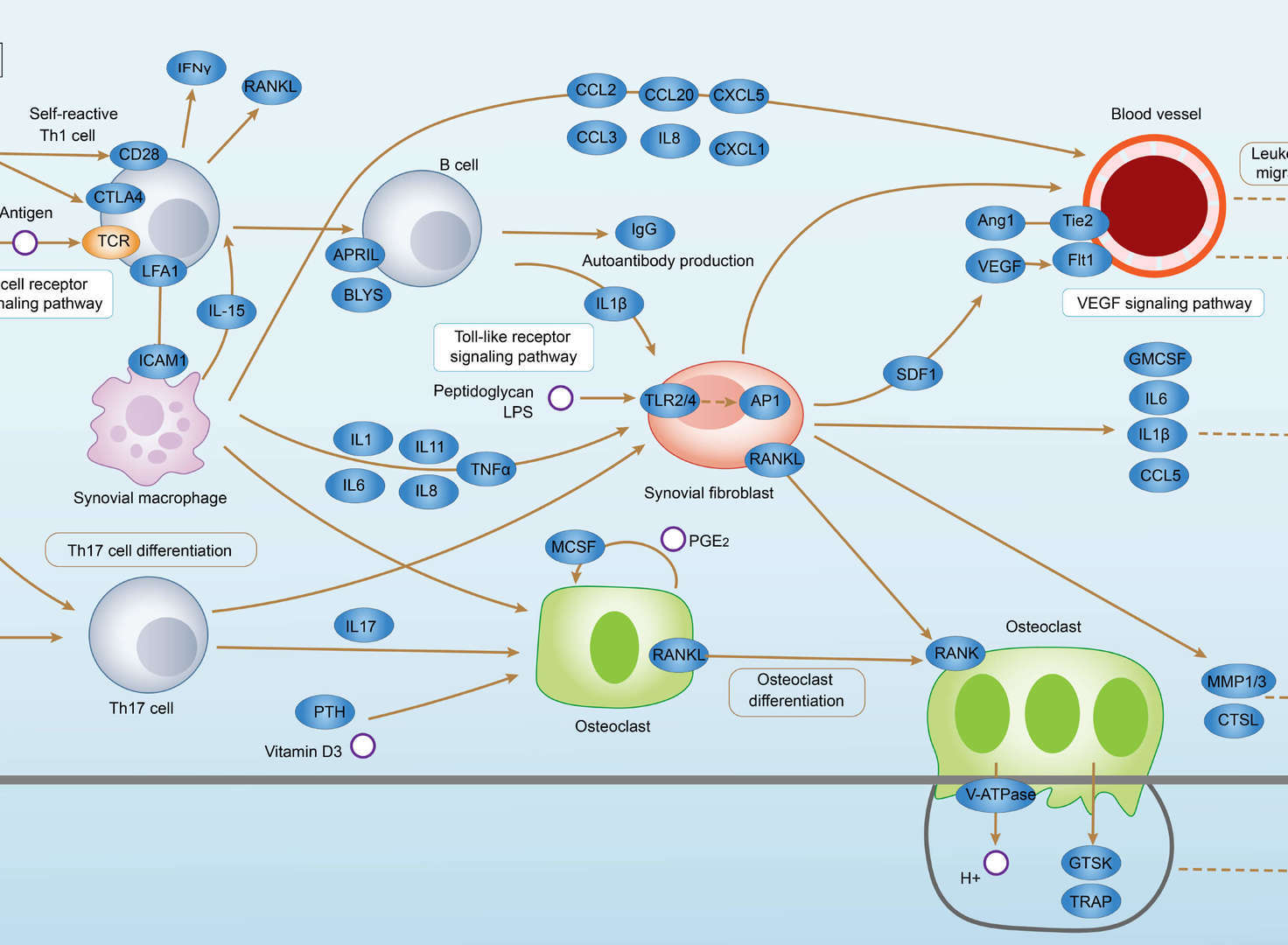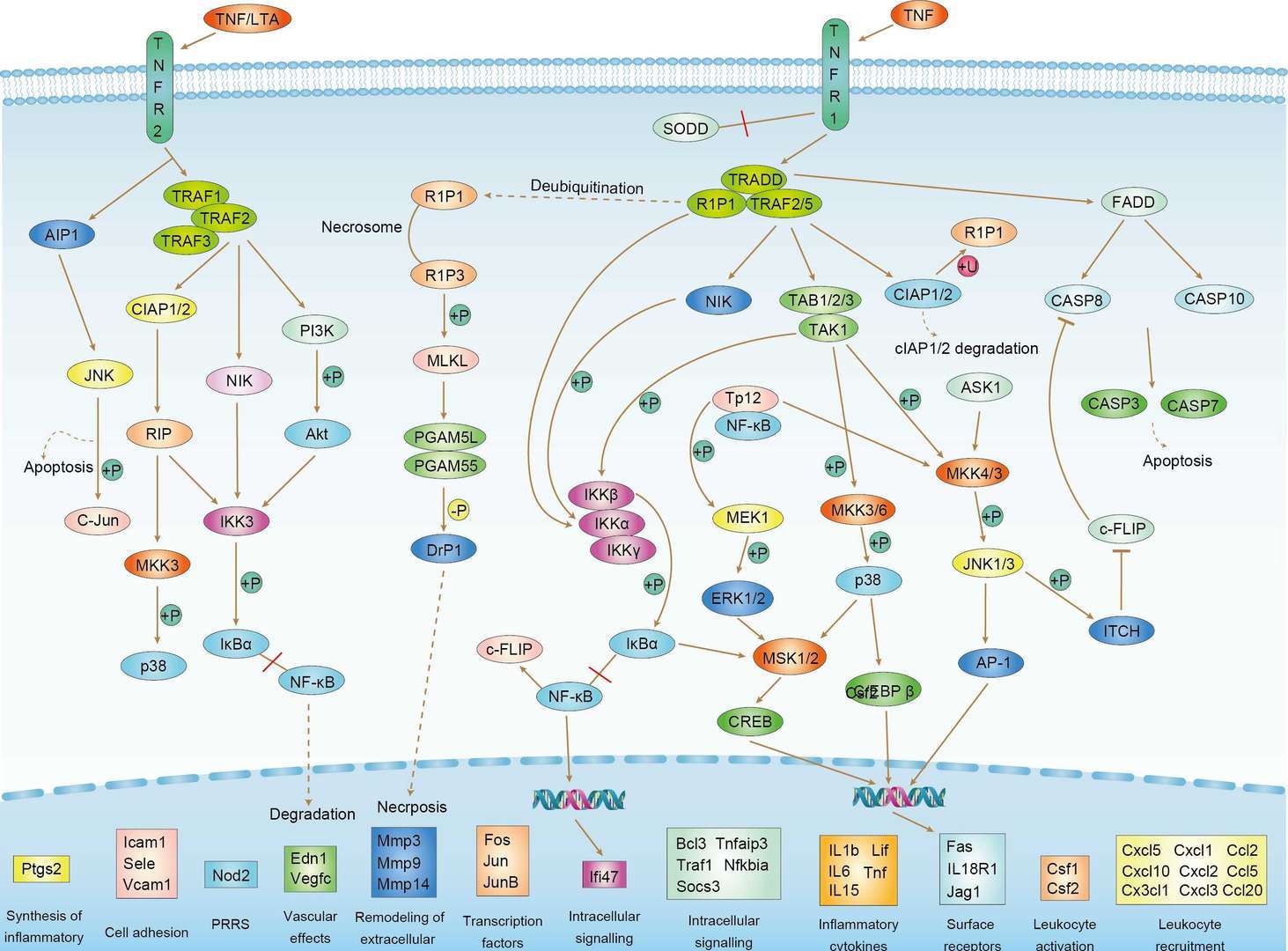Human Anti-CCL2 Recombinant Antibody (clone CNTO 888) (CAT#: PABL-421)
Recombinant Human Antibody (CNTO 888) is capable of binding to CCL2, expressed in HEK 293 cells. Expressed as the combination of a heavy chain (HC) containing VH from anti-CCL2 mAb and CH1-3 region of human IgG1 and a light chain (LC) encoding VL from anti-CCL2 proteins mAb and CL of human kappa light chain. Exists as a disulfide linked dimer of the HC and LC hetero-dimer under non-reducing condition. This antibody binds CCL2 with high affinity (KD = 22 pM) and inhibits CCL2 binding to its receptor and consequentfunctional activity.

Figure 1 CNTO888 inhibits PC-3ᴸᵘᶜ cell proliferation and migration in vitro.
PC-3ᴸᵘᶜ cells were stimulated with CCL2 (10 or 100 ng/mL) for 72 h in the presence or absence of CNTO888 (30 μg/mL), C1142 (30 μg/mL), or CNTO888 + C1142 (30 μg/mL each). The control antibody (Ab) for CNTO888 is anti-huIgG and the control antibody for C1142 is C1322 (a rat/mouse chimeric nonspecific antibody). Cell viability was measured by WST-1. Columns, mean percentage of serum-free medium control; bars, SD (*, P < 0.05; **, P < 0.01). SFM, serum-free medium.
Loberg, R. D., Ying, C., Craig, M., Day, L. L., Sargent, E., Neeley, C., ... & Pienta, K. J. (2007). Targeting CCL2 with systemic delivery of neutralizing antibodies induces prostate cancer tumor regression in vivo. Cancer research, 67(19), 9417-9424.

Figure 2 immunoblot analysis of Akt, p70S6 kinase, and mitogen-activated protein kinase p44/p42 activation.
Representative immunoblots from four independent experiments. 1, control; 2,CCL2 (100 ng/mL, 24 h); 3, CCL2(100 ng/mL) + CNTO888 (30 μg/mL); 4, CNTO888(30 μg/mL).
Loberg, R. D., Ying, C., Craig, M., Day, L. L., Sargent, E., Neeley, C., ... & Pienta, K. J. (2007). Targeting CCL2 with systemic delivery of neutralizing antibodies induces prostate cancer tumor regression in vivo. Cancer research, 67(19), 9417-9424.

Figure 3 Efficacy of single-agent anti-CCL2 antibodies compared with single-agent docetaxel in vivo.
Inhibition of CCL2 was compared with docetaxel (MTD 40 mg/kg) by bioluminescent imaging and quantification of total tumor burden. Mice received PC-3ᴸᵘᶜ cells by intracardiac injection (n = 10 per group). Beginning on day 14, mice received PBS (□), (CNTO888 (●), C1142),CNTO888 + C1142 (*), or docetaxel ( △ ) by i.p. injection (arrow, when treatment began). Solid lines, human antibodies; dashed lines, mouse antibodies.
Loberg, R. D., Ying, C., Craig, M., Day, L. L., Sargent, E., Neeley, C., ... & Pienta, K. J. (2007). Targeting CCL2 with systemic delivery of neutralizing antibodies induces prostate cancer tumor regression in vivo. Cancer research, 67(19), 9417-9424.

Figure 4 Anti-CCL2 antibodies in combination with docetaxel induce tumor regression in vivo.
Inhibition of CCL2 in combination with docetaxel (MTD 40 mg/kg)was assessed by bioluminescent imaging and quantification of total tumor burden and compared with docetaxel alone. Mice received PC-3Luccells by intracardiacinjection. Beginning on day 14, mice received PBS (□), docetaxel + CNTO888 (●), docetaxel + C1142 (□), docetaxel + CNTO888 + C1142 (*), or docetaxel ( w ) by i.p.injection. Docetaxel was administered every week for 3 wks (weeks 2–4), whereas antibodies were delivered twice per week for 6 wks (weeks 2–8). On week 8, allantibody treatments were stopped and tumor progression was monitored to week 12. [arrow (1), initiation of treatment; arrow (2), cessation of docetaxel; arrow (3),cessation of antibody therapy].
Loberg, R. D., Ying, C., Craig, M., Day, L. L., Sargent, E., Neeley, C., ... & Pienta, K. J. (2007). Targeting CCL2 with systemic delivery of neutralizing antibodies induces prostate cancer tumor regression in vivo. Cancer research, 67(19), 9417-9424.
Specifications
- Immunogen
- Human chemokine (C-C motif) ligand 2
- Host Species
- Human
- Derivation
- Human
- Type
- Human IgG
- Specificity
- CCL2
- Species Reactivity
- Human
- Clone
- CNTO 888
- Applications
- Inhib, IB, FuncS
Product Property
- Purity
- >95% as determined by analysis by SDS-PAGE
- Concentration
- Please refer to the vial label for the specific concentration.
- Buffer
- PBS
- Preservative
- No preservatives
- Storage
- Centrifuge briefly prior to opening vial. Store at +4°C short term (1-2 weeks). Aliquot and store at -20°C long term. Avoid repeated freeze/thaw cycles.
Applications
- Application Notes
- This antibody has been reported for use in Inhibition, Immunoblotting and Function Assay.
Target
- Alternative Names
- CCL2; chemokine (C-C motif) ligand 2; HC11; MCAF; MCP1; MCP-1; SCYA2; GDCF-2; SMC-CF; HSMCR30; C-C motif chemokine 2; small-inducible cytokine A2; monocyte secretory protein JE; monocyte chemotactic protein 1; monocyte chemoattractant protein 1; monocyte chemoattractant protein-1; monocyte chemotactic and activating factor; small inducible cytokine subfamily A (Cys-Cys), member 2; small inducible cytokine A2 (monocyte chemotactic protein 1, homologous to mouse Sig-je);
- Gene ID
- 6347
- UniProt ID
- P13500
Related Resources
Product Notes
This is a product of Creative Biolabs' Hi-Affi™ recombinant antibody portfolio, which has several benefits including:
• Increased sensitivity
• Confirmed specificity
• High repeatability
• Excellent batch-to-batch consistency
• Sustainable supply
• Animal-free production
See more details about Hi-Affi™ recombinant antibody benefits.
Downloads
Download resources about recombinant antibody development and antibody engineering to boost your research.
See other products for "Clone CNTO 888"
See other products for "CCL2"
Recombinant Antibody
| CAT | Product Name | Application | Type |
|---|---|---|---|
| MOB-1273z | Mouse Anti-CCL2 Recombinant Antibody (clone 15A10) | ELISA, WB | Mouse IgG1 |
| MOB-1149CT | Mouse Anti-CCL2 Recombinant Antibody (clone 2D8) | ELISA, IHC-P, sELISA | Mouse IgG1 |
| HPAB-1658-FY | Mouse Anti-CCL2 Recombinant Antibody (clone C775) | ELISA | Mouse IgG1, κ |
| ZG-0153U | Mouse Anti-CCL2 Recombinant Antibody (clone 3D2E5) | ELISA, IHC | Mouse IgG2b |
| VS-0923-FY32 | Recombinant Mouse Anti-CCL2 Antibody (VS-0923-FY32) | ELISA, WB | Mouse IgG2b |
Single-domain Antibody
| CAT | Product Name | Application | Type |
|---|---|---|---|
| NABG-038 | Recombinant Anti-Human CCL2 VHH Single Domain Antibody | WB, ELISA, IHC, FuncS | Llama VHH |
Fab Fragment Antibody
| CAT | Product Name | Application | Type |
|---|---|---|---|
| PFBL-418 | Human Anti-CCL2 Recombinant Antibody (clone CNTO 888); Fab Fragment | WB, ELISA, FuncS | Human Fab |
| HPAB-1658-FY-S(P) | Mouse Anti-CCL2 Recombinant Antibody (clone C775); Fab Fragment | ELISA | Mouse Fab, κ |
scFv Fragment Antibody
| CAT | Product Name | Application | Type |
|---|---|---|---|
| PSBL-418 | Human Anti-CCL2 Recombinant Antibody (clone CNTO 888); scFv Fragment | WB, ELISA, FuncS | Human scFv |
| HPAB-1658-FY-F(E) | Mouse Anti-CCL2 Recombinant Antibody (clone C775); scFv Fragment | ELISA | Mouse scFv |
Mouse Antibody
| CAT | Product Name | Application | Type |
|---|---|---|---|
| TAB-0744CL | Anti-Human CCL2 Recombinant Antibody (AAV293) | ELISA | |
| TAB-0745CL | Anti-Human CCL2 Recombinant Antibody (AAV294) | ELISA | |
| TAB-0754CL | Mouse Anti-CCL2 Recombinant Antibody (TAB-0754CL) | ELISA, SPR, DB, IHC | Mouse IgG1 |
| TAB-0755CL | Mouse Anti-CCL2 Recombinant Antibody (TAB-0755CL) | SPR, DB, IHC | Mouse IgG1 |
| TAB-0756CL | Mouse Anti-CCL2 Recombinant Antibody (TAB-0756CL) | ELISA, SPR, DB, IHC | Mouse IgG2b |
Human Antibody
| CAT | Product Name | Application | Type |
|---|---|---|---|
| TAB-0748CL | Anti-Human CCL2 Recombinant Antibody (1.1.1) | ELISA | Human antibody |
| TAB-0749CL | Anti-Human CCL2 Recombinant Antibody (1.10.1) | ELISA | Human antibody |
| TAB-0750CL | Anti-Human CCL2 Recombinant Antibody (MC32) | ELISA, Block, Inhib | Human antibody |
| TAB-0751CL | Anti-Human CCL2 Recombinant Antibody (MC8) | ELISA | Human antibody |
| TAB-0752CL | Anti-Human CCL2 Recombinant Antibody (MC15) | ELISA | Human antibody |
Neutralizing Antibody
| CAT | Product Name | Application | Type |
|---|---|---|---|
| NEUT-147CQ | Mouse Anti-CCL2 Recombinant Antibody (clone CBL605) | WB, ELISA(Cap), ICC, Neut | Mouse IgG1 |
| NEUT-148CQ | Mouse Anti-CCL2 Recombinant Antibody (clone CBL221) | ELISA, WB, Neut | Mouse IgG1, κ |
| NEUT-149CQ | Mouse Anti-CCL2 Recombinant Antibody (clone CBL436) | WB, Neut | Mouse IgG1 |
| NEUT-150CQ | Mouse Anti-CCL2 Recombinant Antibody (clone CBL728) | WB, ELISA(Cap), Neut | Mouse IgG2b |
| NEUT-151CQ | Mouse Anti-CCL2 Recombinant Antibody (clone MNA1) | WB, Neut, ELISA, FC, IA, IF, IHC, IHC-Fr, IHC-P, IP | Mouse IgG1 |
Rabbit Monoclonal Antibody
| CAT | Product Name | Application | Type |
|---|---|---|---|
| MOR-0504 | Hi-Affi™ Rabbit Anti-CCL2 Recombinant Antibody (clone DS504AB) | WB, IF | Rabbit IgG |
| MOR-4543 | Hi-Affi™ Rabbit Anti-CCL2 Recombinant Antibody (clone TH52DS) | WB | Rabbit IgG |
ADCC Enhanced Antibody
| CAT | Product Name | Application | Type |
|---|---|---|---|
| AFC-TAB-117 | Afuco™ Anti-CCL2 ADCC Recombinant Antibody (Carlumab), ADCC Enhanced | ELISA, FC, IP, FuncS, IF, Neut | ADCC enhanced antibody |
Customer Reviews and Q&As
There are currently no Customer reviews or questions for PABL-421. Click the button above to contact us or submit your feedback about this product.
View the frequently asked questions answered by Creative Biolabs Support.
For Research Use Only. Not For Clinical Use.
For research use only. Not intended for any clinical use. No products from Creative Biolabs may be resold, modified for resale or used to manufacture commercial products without prior written approval from Creative Biolabs.
This site is protected by reCAPTCHA and the Google Privacy Policy and Terms of Service apply.









 Rheumatoid Arthritis
Rheumatoid Arthritis
 TNF Signaling Pathway
TNF Signaling Pathway
